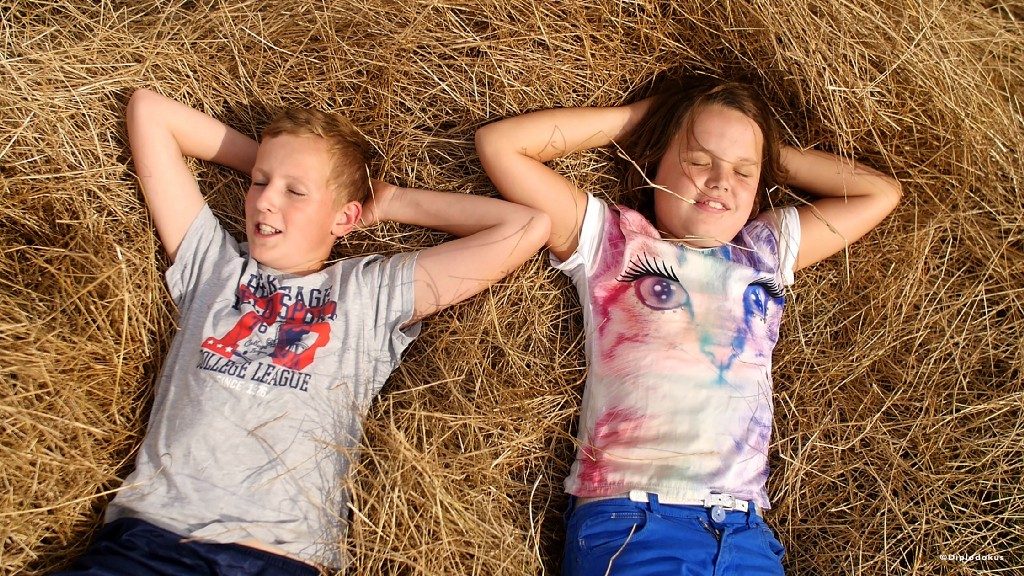Janet van den Brand is a Dutch director currently living in Brussels. Her films have been selected for numerous film festivals including the Generation Kplus competition at the Berlinale in 2013 and 2018. Her other credits include shorts “Arthur’s Grandpa” “Rosa, Anna’s Lil’ Sis,” and “Dog Days.” “Ceres” is van den Brand’s first documentary feature.
“Ceres” will premiere at the 2018 Berlinale on February 19.
W&H: Describe the film for us in your own words.
JV: “Ceres” is a poetic documentary about four children who grow up on remote farms in The Netherlands and who learn their professions from their ancestors from a very young age.
The film is an intimate portrait of the children, following them in their daily lives. It’s also a universal story about the cycle of the seasons, of crops being sown and harvested, of life and death, and most of all, about growing up.
W&H: What drew you to this story?
JV: I grew up on the countryside and my grandfather had a small farm, so the first ideas for “Ceres” grew mainly from my own memories. I was fascinated by the harvest season and the way nature and weather plays a big role in the lives on the farms.
I started scouting the remote countryside of Zeeland, in the south-west of The Netherlands, and found Koen, my first main character. I was so touched by his story and personality that “Ceres” immediately came to life.
W&H: What do you want people to think about when they are leaving the theater?
JV: In the film, we learn how the children grow up on their farms, but moreover, we experience how they feel growing up there. Together with them we witness the seasons go by and the births and deaths of their animals. And while “Ceres” deals with death, the never-ending cycle of life will always start again.
W&H: What was the biggest challenge in making the film?
JV: I followed the children for one and a half years and spent a lot of time with them and their families. This resulted in a lot of footage. The hardest part was the edit, because I had to kill so many darlings, and it was a big puzzle to put all the different moments, experiences, scenes, and impressions in their proper place.
W&H: How did you get your film funded? Share some insights into how you got the film made.
JV: I was able to make “Ceres” with the funding of the Flamish Audiovisual Film Fond (VAF). I was very lucky to receive the support of the documentary commission, and very happy that they trusted me with this film from the beginning. With the VAF came more funds and co-producers, and so the film was fully funded.
W&H: What does it mean for you to have your film play at the Berlinale?
JV: I am very honored to be selected for the Berlinale Generation Kplus competition. “Ceres” started as a small scale, local project. I had a very small and simple set-up and just started filming, even when there was no funding yet. Back then I could never have imagined that my project would result in a Berlinale film.
W&H: What’s the best and worst advice you’ve received?
JV: Best advice: I think the best advice I ever had came from my sound teachers. They taught me the way sound works, to think about sound in a completely different way then I was used to. To use sound as a way of communicating the senses.
Worst adviceL The worst advice also came from a teacher. He told us the film industry was a difficult world, especially for women. I think at that moment he forgot there were — and are — a lot of great female Flamish directors. And more and more talented women coming up.
W&H: What advice do you have for other female directors?
JV: I would advise every female director to always be true to themselves. Never lose faith in what you stand for and follow your heart.
I truly believe that intuition is a great gift and sometimes can make more sense then rational thinking. Rational thinking may end up in a beautiful film, but it is the inner eye and the vision of the director that makes a film stand out. It takes some courage to fully trust feelings we can’t always explain in words.
W&H: Name your favorite woman-directed film and why.
JV: My favorite woman-directed film is “La Ciénaga” by Lucrecia Martel. I like that film so much that I even wrote my thesis about it.
I admire Martel for her power to communicate her films with minimal dramatic storytelling but with very rich audiovisual spaces in which she lets her public experience the story rather then just understand it. She uses colors, structures, and absurd aspects in addition to a very subtle but thoroughly tactile soundscape in order to create the spaces in which the main characters move and experience.
W&H: Hollywood and the global film industry are in the midst of undergoing a major transformation. Many women and some men in the industry are speaking publicly about their experiences being assaulted and harassed. What do you think of the recently announced anti-sexual harassment Commission made up of industry leaders? Do you believe that it will help make systemic change? What do you think needs to be done to address this issue?
JV: I have no experience with this subject, but I think progression is always good, as is the freedom to speak up and share your experiences.
I do believe everyone should be treated equally, and together we will accomplish a lot more than when standing alone.






